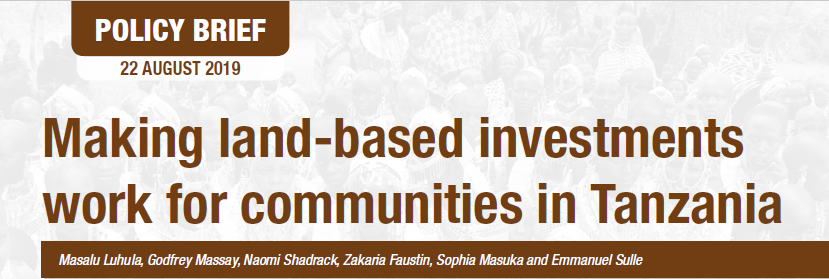The State of Land-Based Investments in Tanzania: A Situational Analysis Report
From mid-2000s Tanzania experienced a significant interest in land-based investments, with foreign investors leasing chunks of land for agriculture, tourism and forest plantations (Kamanga 2008; Locher and Sulle 2013; Sulle 2016). To date, few land-based investments have generated significant incomes for rural communities while others are disputed. While land-based investment is needed to achieve development goals such as poverty alleviation, industrialization, food security and improved nutrition, an investment that wrongfully displaces rural people and turn them into low-wage or temporary labourers does not meet such goals. Instead, it may create harm to local people and communities and it may prove difficult to implement beneficial partnerships between communities and investors when legitimate right holders are displaced.
This report provides a situational analysis of the current land issues in Tanzania. It does this by assessing the impacts of land-based investments in the country with specific focus on investments located within andoutside the Southern Agriculture Growth Corridor of Tanzania. It gives an overview of the current state with regards to land deals in the country, the existing and planned business models and highlights the existing limitations on data and knowledge about these deals. It focuses on the forms and the impacts of existing land-based investment projects on affected populations, with a specific focus on policy, legal and institutional framework governing large-scale land-based investment. The study thus draws insights from five districts of Mainland Tanzania. The review identifies several land-based investments models to monitor in investment areas, provides recommendations and strategic direction for the work of Land-Based Investment Working Group (LBI-WG.
| Attachment | Size |
|---|---|
| 960.33 KB |

